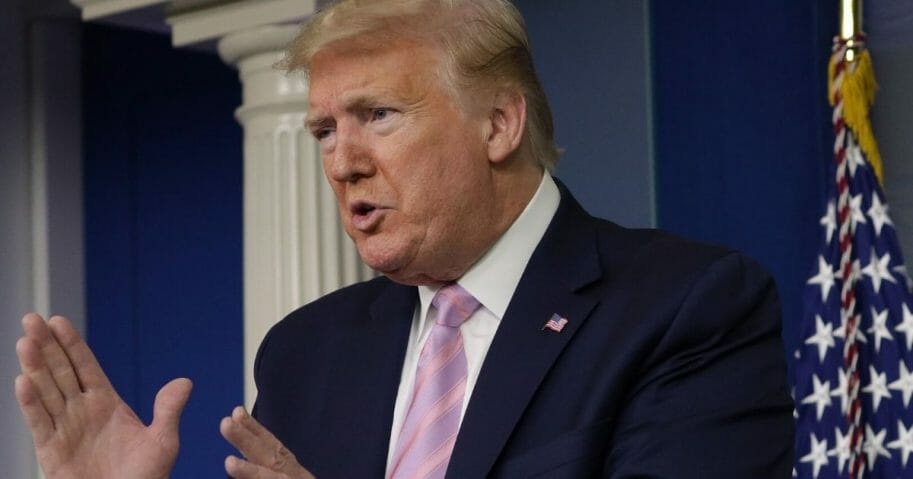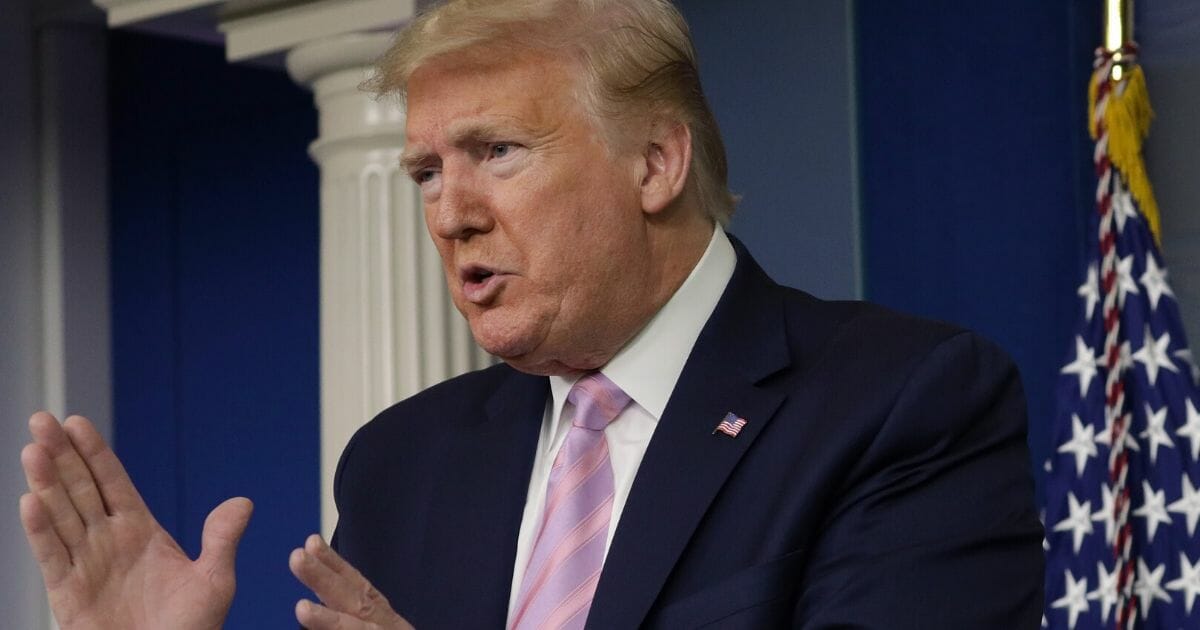 Alex Wong / Getty ImagesPresident Donald Trump speaks during the daily news briefing of the White House Coronavirus Task Force in the James Brady Briefing Room on April 10, 2020, at the White House. (Alex Wong / Getty Images)
Alex Wong / Getty ImagesPresident Donald Trump speaks during the daily news briefing of the White House Coronavirus Task Force in the James Brady Briefing Room on April 10, 2020, at the White House. (Alex Wong / Getty Images)
As we move from attempting to contain the coronavirus to reopening our economy and encouraging people to go back to work, the dynamics of the fear of the virus are about to change dramatically.
Right now, fear is helping us contain the virus. It is our ally and good friend. Fear keeps people at home and reminds them of the importance of social distancing.
However, when we start encouraging people to go back to work and school, fear will militate for their staying at home. Worried about catching the virus, they will be understandably reluctant to go back to the workplace or the schoolhouse. This worry will handicap efforts to restart the economy.
The assumption of most public officials and members of congress seems to be that only economic stimulus is needed to restart the economy. Give people enough money, they reason, and they will rush out to spend it, jumpstarting economic growth.
Economics, however, is more than a matter of money. As we all know, it is heavily influenced by psychology. Fear of viral contagion is likely to loom larger in the public calculation than mere dollars and cents.
TRENDING: Nurse’s Viral Video on Hospital’s Mask Shortage Was a Complete Lie – And the Media Fell for It
To reopen the economy and schools without a foolproof way of protecting the public health is likely to be a losing proposition.
Every day we would read reports of people getting infected when they returned to work or school, reinforcing our fears and potentially leading to such high rates of absenteeism as to be tantamount to a government-ordered closure.
It has been remarkable how Americans have acted to conform to the advice of health officials by staying at home and social distancing. But once the objective is to get them to engage in potentially risky behavior by leaving their homes, fear will weigh in on the other side of the equation.
This conundrum highlights the importance of developing a vaccine before we urge people to go back to work. Failing a vaccine, we would need a therapeutic treatment that promises a cure to those who get infected.
Do you think President Trump should wait to “reopen” the economy?
The only other way to manage reopening the economy would be to have universal testing for the virus so that workers could count on a virus – free workplace or school but the difficulty of such massive testing may be too formidable.
So we must produce a vaccine in order to reopen the economy.
Logistical obstacles to doing so must be overcome.
Some of the obstacles are mechanical – producing enough vaccines in a short period of time. But others relate to the concerns of the public health community about vaccinating the public with unproven medication.
Here, we must delineate between the vaccines that are found to be safe and those which have been found to be safe but have not been proven to be fully effective. We must all reconcile ourselves to getting vaccinated with shots that, while safe, are not foolproof.
As long as we know that the shots will not make us sick, we should willingly accept them and trust them so we can return to work.
A vaccine, combined with good therapeutic medicine, must offer a high enough likelihood of recovery should anyone be infected to overcome and permit the economy and the education system to reopen. But it would be a fool’s mission to try to reopen without developing a workable vaccine when you do it.
Once the only thing we have to fear is, as FDR famously said, fear itself, we can get the economy back on track.
Sign the petition telling the feds to push for hydroxychloroquine use: Click here!
The views expressed in this opinion article are those of their author and are not necessarily either shared or endorsed by the owners of this website.
We are committed to truth and accuracy in all of our journalism. Read our editorial standards.


